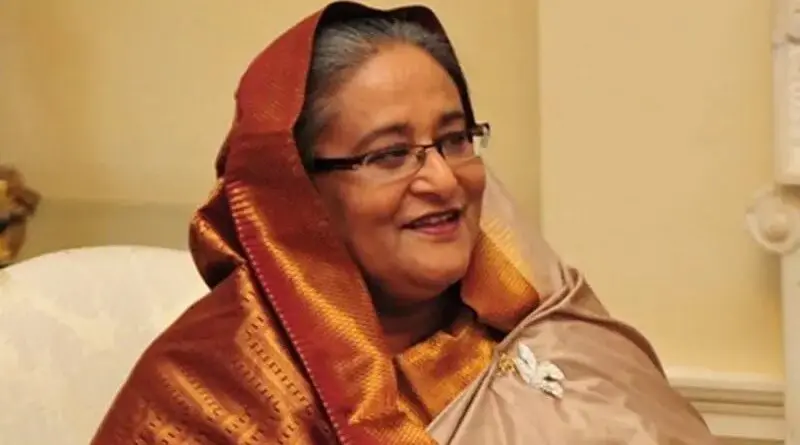Selection Trial, Not Contest In Strange Bangladesh Poll – OpEd
It’s Awami League versus Awami League in Bangladesh’s forthcoming parliament polls scheduled on Jan 7. The leading Opposition Bangladesh Nationalist Party or BNP and its ally Jamaat-e-Islami has pulled out of the polls when their demand for an ‘independent caretaker’ supervised election was turned down. This Opposition coalition has announced plans for continuous agitation to bring down the Awami League government and is incrementally stepping up violence by targeting public transport, railways and government offices .
Bangladesh intelligence officials say they have credible reports that four secretly raised terror groups will be deployed by Jamaat-e-Islami to attack mid-ranking police and civil officials and Awami League organisers and popular secular personalities to disrupt the command chain in both the ruling party and the civil bureaucracy .
“The BNP will lead the agitation and bear the brunt of police crackdowns but it is the Jamaat and its covert groups who will try wreck maximum damage,” a senior domestic intelligence official told this writer on condition of anonymity.
He said the plan is to force PM Sheikh Hasina to hand over to the army , already in a deployable mode just ahead of the elections, the entire responsibility for law and order and then expected recalcitrant elements in the military leadership to take charge and do the rest.
With the BNP and the Jamaat-e-Islami out of the electoral fray , all that is left of the semblance of an electoral contest is the huge number of “independents” who are fighting the polls. 229 of them are Awami Leaguers who filed to contest the polls after being denied party nominations. To give the polls the look of a contest, the Awami League leadership gave these independents clearance to fight the polls against the officially nominated party candidates, many of who are either implicated in multiple scams or completely unpopular because of lack of grassroots connect.
“Hasina may have felt a friendly contest between multiple aspirants would return the best popular choices to parliament and also give the polls the look of a competition, but this can backfire on her,” says Sukhoranjan Dasgupta, political commentator and author on Bangladesh.
If the polls are fairly conducted to convince global opinion that democracy is alive and kicking in Bangladesh, there is a strong chance that many more independents will win than official candidates.
Here is a Catch 22 for Hasina — if polls are fair and more independents win, they have the capacity to push for new leaders against existing unpopular ministers and create an independent platform to act as a strong pressure group against the powerholder syndicate in Awami League run by PM Adviser Salman F Rahman, but if the polls are rigged as in 2018-19 polls , it will be huge shot in the arm for all, like BNP-JAMAAT coalition or the US who argued there cannot be a fair election with Hasina in power.
There is a strong undercurrent in the Awami League amongst its pro-liberation senior leadership and grassroots cadres that an independent pro-1971 democratic and secular platform ( which some would like to name Moncho Ekattor) is the need of the hour to rescue the party by purging pro-Pakistan Islamists and pro-Chinese traders at all levels or split the party and convert the platform into a party. These elements who are relatively new entrants in Awami League and have thrived mainly on backing from Salman Rahman , who some call the defacto PM, have attracted a new adage – “hybrid”. Facebook posts by Awami Leaguers railing against these ” hybrids” abound in the Bangladesh netscape.
“There is a parallel leadership at all levels to counter and upstage the current powerholder group in the Awami League who as yet don’t want to challenge Hasina’s supreme leadership but whose patience is clearly running out due to her sellout to the Rahman coterie,” said a senior Awami League leader who played a lead role in the anti-Ershad agitations in the 1980s.
Like many heroes of the 1971 Liberation War and the fierce agitations that brought down Bangladesh’s military junta in 1990, this one-time youth organiser has been sidelined and does not want to be named because he fears vendetta-driven retaliation from the Hasina regime.
“Mujib led the revolution, Zia the counter-revolution, Hasina recovered it but is now surrendering the revolution,” this leader told this writer on condition of anonymity.
The Jatiyo Party created by Ershad and the Left groups like Jatiya Samajtantrik Dal or Bangladesh Workers Party have already come to seat sharing arrangements with the Awami League . ” So they are allies rather than competitors ,” said veteran Indian Intelligence Bureau official Benu Ghosh with a track record of expertise in Bangladesh.
“It is looking like the factional tussles ahead of a party Congress of the Chinese Communist Party rather an India type general elections,” Ghosh said, alluding to Hasina’s increasing fascination for the Chinese one-party model as against the Indian multi-party democracy that Bangladesh adopted at birth.

